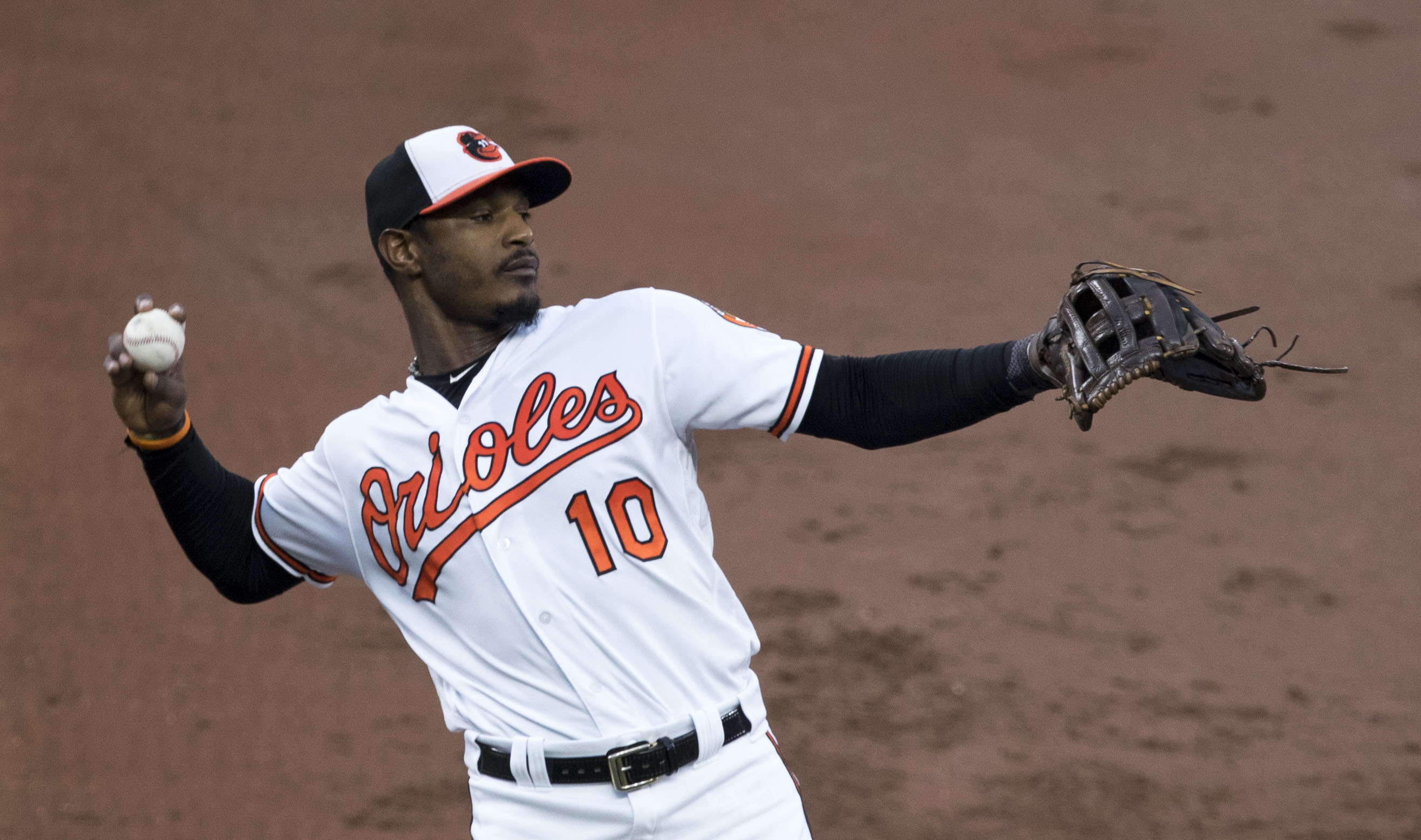Views expressed in opinion columns are the author’s own.
On Friday, Baltimore Orioles center fielder Adam Jones went 3-for-4 with a home run. The game was his 1,500th as an Oriole, making him one of only eight players to reach that milestone. Over his tenure, Jones has helped bring the Orioles to their first postseason appearance in a decade. But more importantly, he has consistently used his platform to better his city and speak out against racism. This is especially important in a league where black players are underrepresented and black fans are often ignored. As Major League Baseball looks to get young people interested in the game, it should be elevating the voices of Adam Jones and other black players. The future of the sport depends upon the league getting serious about the racism of its past and present.
This season, only 8.4 percent of players on the Major League rosters are black. That’s the highest it’s been since 2012. The lack of black representation also extends to many teams’ front offices and coaching staffs. These numbers can make it hard for the rare black voices to be heard.
As Jackie Robinson’s daughter Sharon put it, “in football and basketball you have a group [of black players] and therefore you can take a group action … [But in baseball,] if [players] speak out individually, they could be the only African-American player on their team and it could be a difficult spot for them to be in.” Luckily, this has never stopped Adam Jones.
After a 2017 game against Boston, Jones said, “A disrespectful fan threw a bag of peanuts at me … I was called the N-word a handful of times tonight.” In 2013, a San Francisco fan threw a banana peel at him. As he put it, “When I’m in center field, I hear the good, the bad, the ugly from the fans. I hear it.” But Jones took these incidents as opportunities to speak out. He has been blunt: “Baseball is a white man’s sport.”
He is quick to elevate the accomplishments of black ballplayers but explained, “the decisions made in baseball are white-made decisions.” The league has experimented with various rule changes to speed up pace of play and reach younger fans. But the racial politics of baseball are the most in need of an update. The league should commit to supporting black players and fighting for racial justice.
The rarity of a player like Jones reminds us that the imagery of baseball that permeates our national consciousness is full of erasure. The game has for too long prided itself on being ‘apolitical’ while advancing politics that cater specifically to whiteness. The significance of a black ballplayer using his position to address racism should not be ignored.
Adam Jones certainly can’t play baseball forever, and it is crucial that others continue his activism. But I predict that long after he leaves Baltimore, the image of Jones and what he stood for will remain. For many O’s fans, that picture is clear. He stands in the wide-open green of the outfield, still within earshot of taunts coming from the bleachers. He keeps his eyes forward and blows a bubble with his chewing gum. He waits, ready to silence the crowd.
CORRECTION: Due to a columnist error, a previous version of this column stated Major League Baseball has 32 teams. It has 30 teams. The piece has been updated.
Jack Lewis is a senior government and politics major. He can be reached at jlewis20@umd.edu



